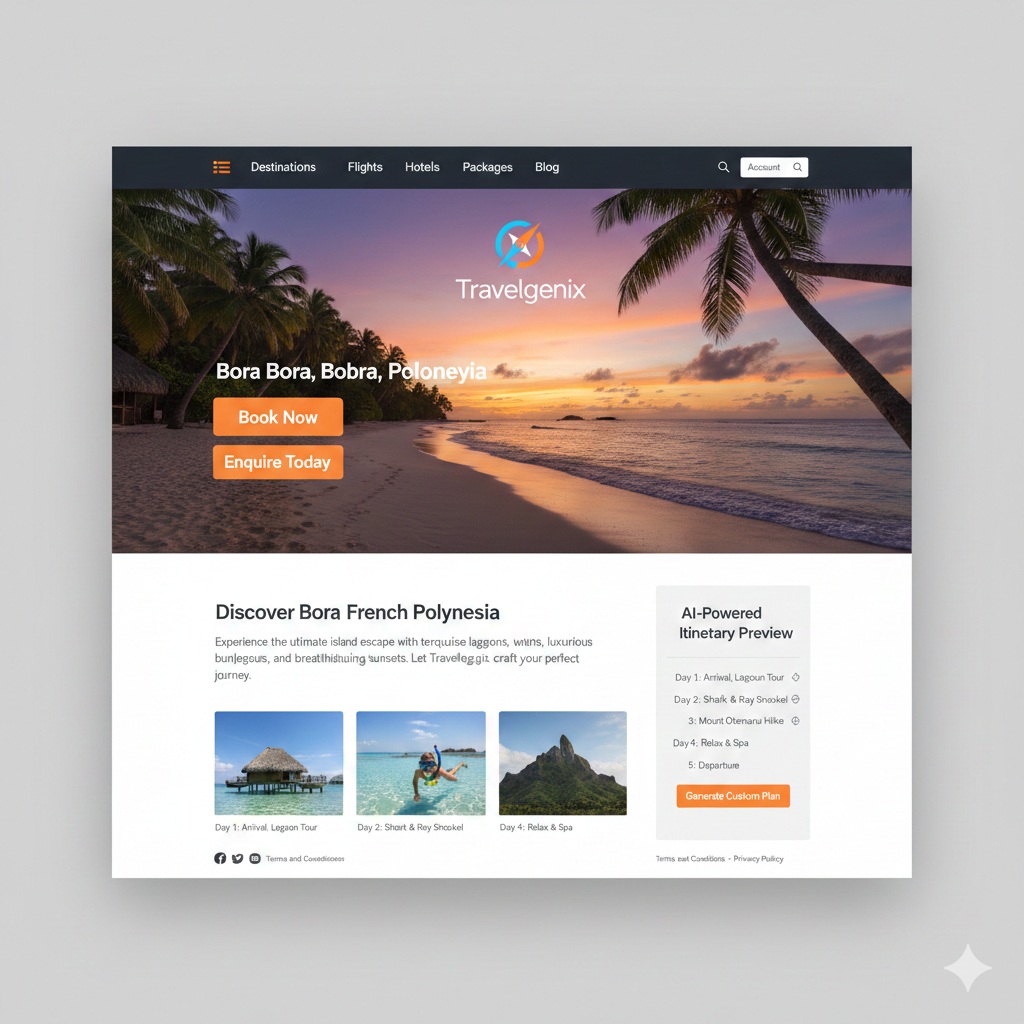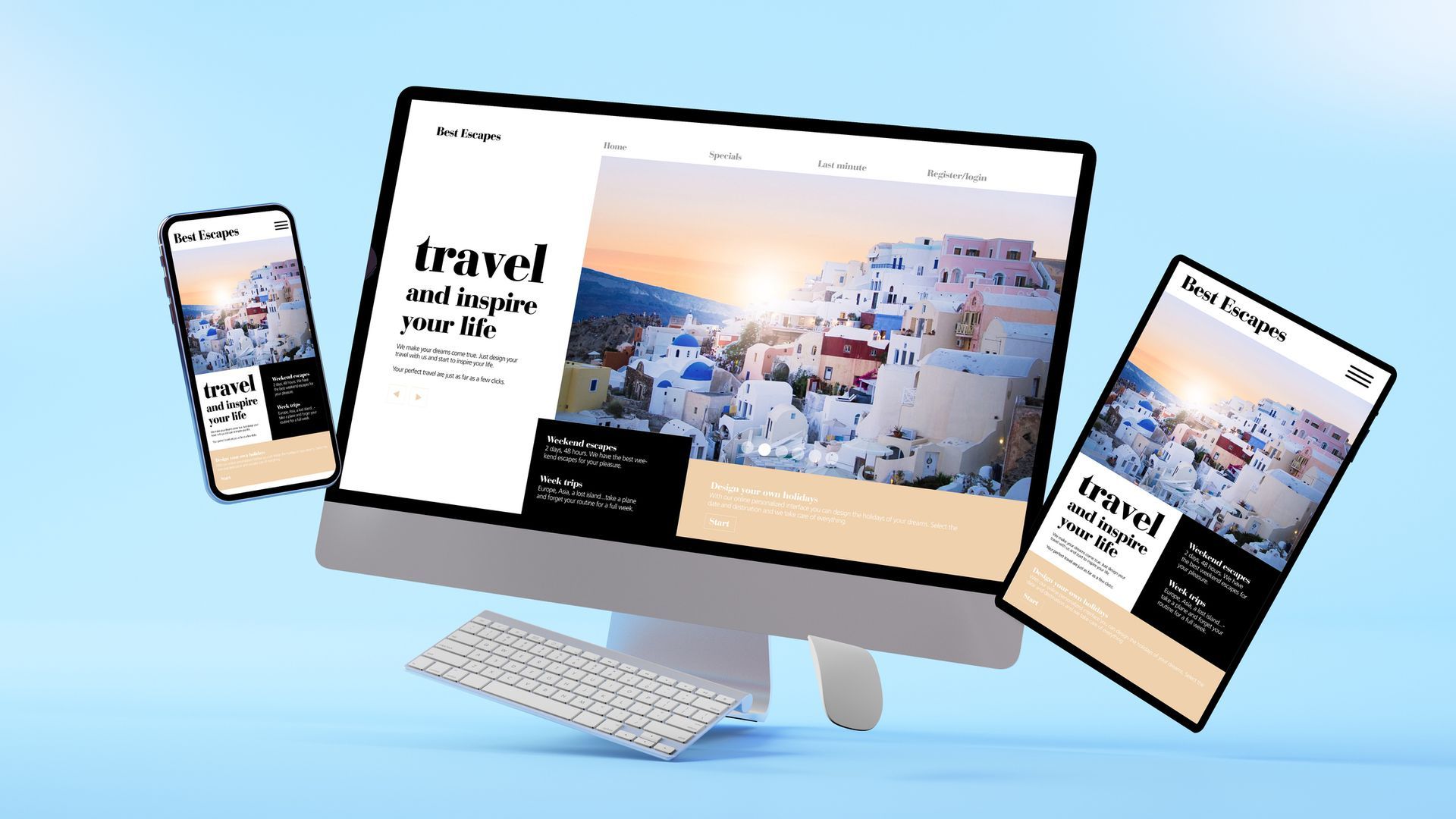The Pros and Cons of Dynamic Packaging and ATOL for Travel Agents
In the competitive world of the travel industry, travel agents are continually looking for ways to differentiate themselves from their competitors and offer unique value to their clients. One method to achieve this is by providing dynamic packaging and obtaining an Air Travel Organiser's Licence (ATOL).
This blog post discusses the pros and cons of implementing these strategies for travel agents and helps you make an informed decision on whether they are suitable for your business.
The Concept of Dynamic Packaging
Dynamic packaging is the process of creating tailor-made holiday packages by combining various travel components, such as flights, accommodation, and activities, to suit each customer's unique preferences and requirements. This approach offers several benefits, including increased flexibility, better value for money, and personalised experiences for travelers. However, it also comes with its own set of challenges and risks.
Pros of Dynamic Packaging
Customisation and Flexibility
One of the primary advantages of dynamic packaging is the ability to offer customised and flexible travel experiences. Travel agents can create bespoke packages by combining different travel components to cater to each client's unique preferences and requirements. This level of personalisation can lead to higher customer satisfaction, repeat bookings, and positive word-of-mouth.
Increased Revenue Potential
Dynamic packaging allows travel agents to offer a wide range of travel products and services, increasing the potential for additional revenue streams. By bundling various components together, agents can often provide better value for money, making it easier to upsell additional services and secure higher profit margins.
Competitive Edge
Offering dynamic packaging can set your travel agency apart from competitors that provide traditional off-the-shelf holiday packages. By tailoring packages to meet specific client needs, you can attract a diverse range of customers and position your business as a leader in the market.
Cons of Dynamic Packaging
Increased Complexity
With dynamic packaging comes increased complexity in terms of managing multiple suppliers, inventory, and pricing. Travel agents must ensure they have the necessary systems and processes in place to handle this added layer of complexity.
Legal Responsibilities
Travel agents offering dynamic packages are required to comply with specific regulations, such as the Package Travel Regulations, which protect consumer rights. This may involve additional administrative work, such as providing accurate information on travel arrangements, ensuring financial protection, and handling customer complaints.
The Role of ATOL
ATOL is a financial protection scheme for UK-based travel companies that sell air-inclusive holiday packages. It ensures that customers who book such packages are protected in the event of a travel company's insolvency. Obtaining an ATOL comes with its own set of benefits and drawbacks.
Pros of having an ATOL
Consumer Trust and Confidence
Having an ATOL demonstrates your commitment to consumer protection and can enhance your travel agency's reputation. Customers who book air-inclusive packages with an ATOL-protected travel agent can have peace of mind knowing that they are financially protected in case of company failure.
Compliance with Regulations
Obtaining an ATOL ensures that your travel agency is compliant with the Package Travel Regulations, which require businesses selling air-inclusive packages to provide financial protection to their customers.
Cons of having an ATOL
Costs and Administration
Applying for and maintaining an ATOL can be time-consuming and costly, as it involves annual fees, bonding arrangements, and ongoing administrative tasks, such as submitting financial reports and customer booking data. This added expense and workload may not be feasible for smaller travel agencies.
Limitations for Non-UK Businesses
ATOL is specifically designed for UK-based travel companies, making it less relevant for travel agents operating outside of the UK. These businesses may need to explore alternative financial protection schemes that are more applicable to their local market.
The decision to offer dynamic packages and obtain an ATOL largely depends on the specific needs and goals of your travel agency. While there are numerous benefits to providing customised travel experiences and having financial protection in place, it's essential to consider the associated costs and administrative workload.
Before making a decision, carefully evaluate your business's capacity to manage the complexities of dynamic packaging and the ATOL application process. Additionally, consider your target audience and the potential demand for tailor-made holiday packages within your market.
If your travel agency can efficiently handle the increased complexity and is well-positioned to cater to clients seeking personalised travel experiences, dynamic packaging can be a valuable strategy to differentiate your business from competitors and attract a loyal customer base.
Similarly, obtaining an ATOL can enhance consumer trust and confidence in your travel agency, which can contribute to your business's long-term success.
However, if your business operates outside of the UK or is a smaller agency with limited resources, it may be more practical to explore alternative strategies and financial protection schemes that better align with your business's needs and capabilities.
In conclusion, travel agents should weigh the pros and cons of dynamic packaging and obtaining an ATOL in the context of their specific business objectives and capabilities. By carefully considering these factors, travel agents can make informed decisions on the best approach to g row their business and provide exceptional value to their customers.




